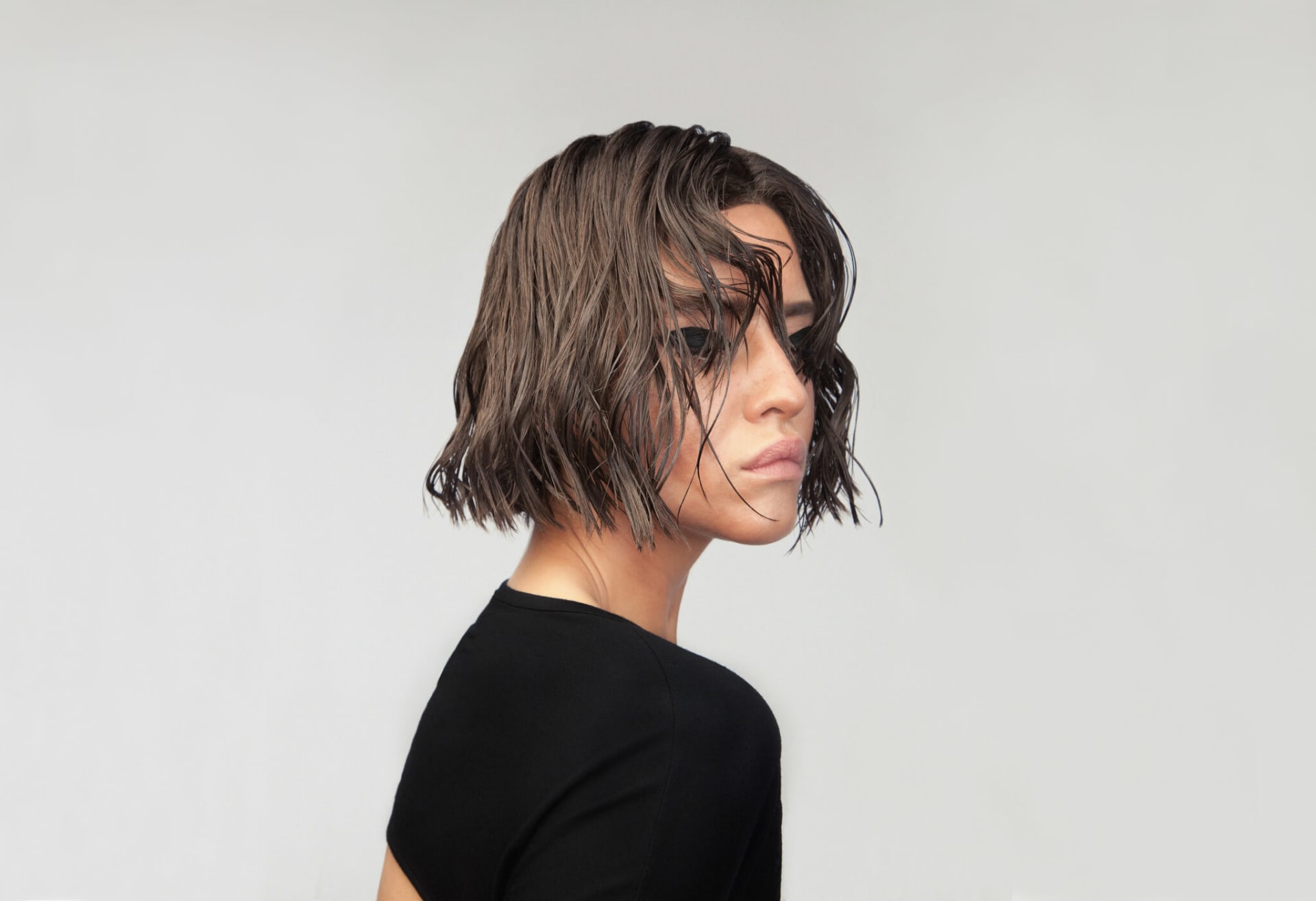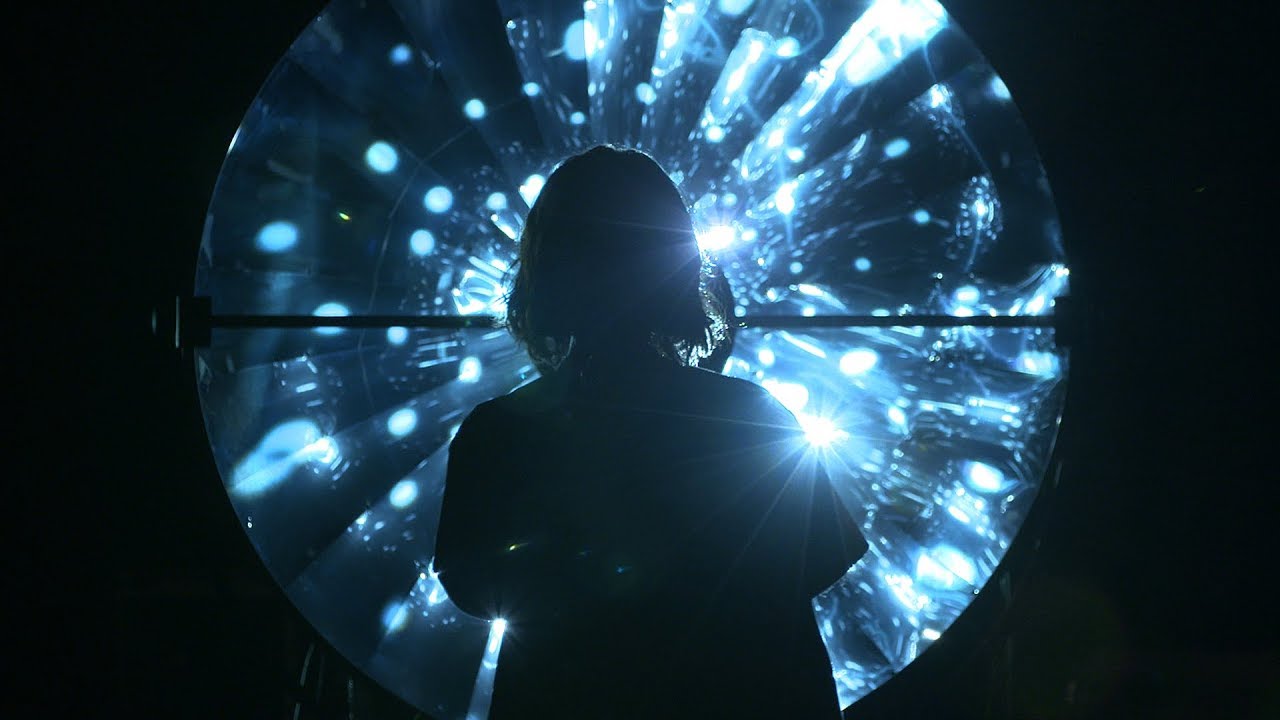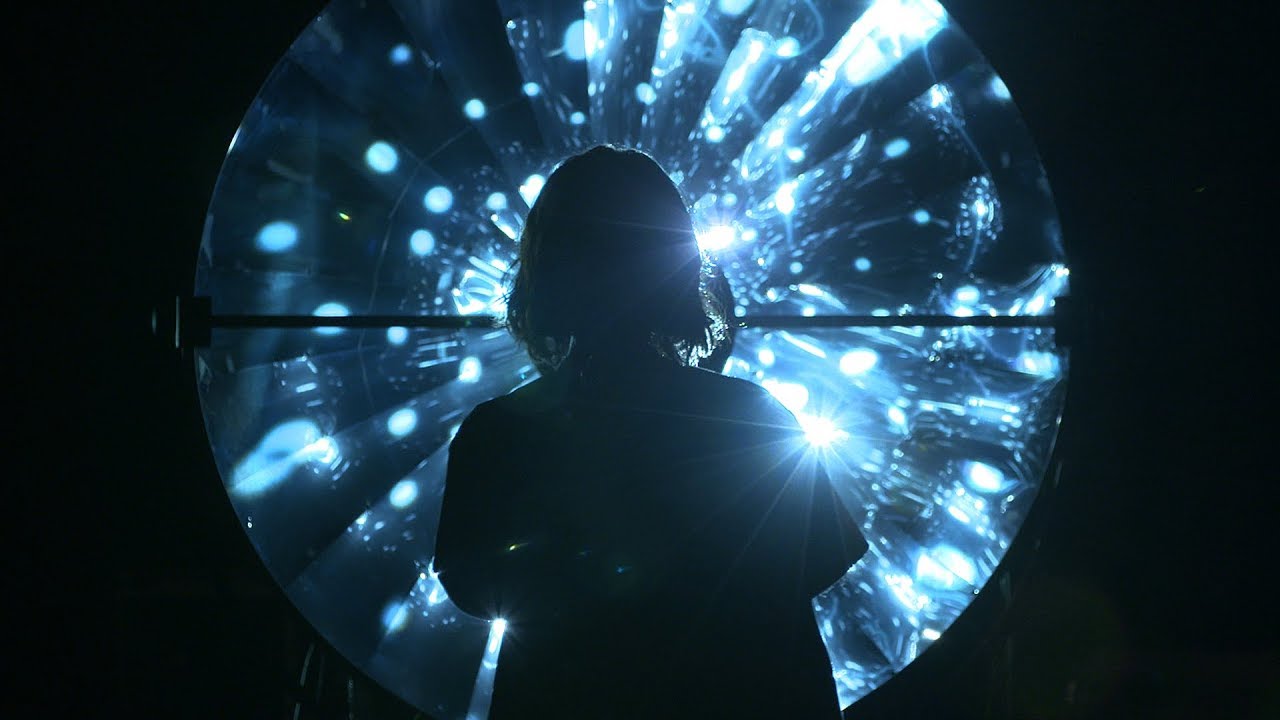
Dillon Gives Us The Scoop About Her New Live Album
German singerwriter Dillon feels like an anomaly on BPitch Control. While Ellen Allien’s label is generally characterized by releases that cover strains of techno, tech-house and electro, Dillon adds a softer and more organic touch with heartwrenching compositions that wrap her voice around intricate piano strokes. So far, the Brazilian-born and German-based artists has released two LPs: This Silence Kills and The Unknown, both of which were comprised of songs with lyrics that originated from Dillon’s own poetry.
Last year, she performed a variation of tracks from both albums at the Beliner Festspiele to a more-than-welcoming audience, who joyously sung the words of “Tip Tapping” in sync back at her. “Tip tapping/I was tip tapping/In the dark,” she enunciates, an infectious giggle emanating from her as she begins the song. The recording is now seeing the light of day as a live album titled Live At Haus Der Berliner Festspiele, and it offers a completely different way of experiencing Dillon’s music that’s backed with the angelic tones of a full choir. In light of this milestone, we caught up with her for another interview to discuss what inspired the change.
When did you move to Germany from Brazil?
I was really small; almost 6, I think.
Did you have any kind of formative experiences with music while you were still living in Brazil?
No! I mean, my household was always filled with music, but never did I have any visions for myself.
When you were growing up, did your family encourage creative pursuits?
Yes, absolutely. It was always, “Do as you wish, but do as you can—whatever it is.”
Were they ever involved in making music, or was that something that came from you?
My father is a musician; he’s always made music. He makes film and TV music, which is very different from what I do. I have four siblings, but we weren’t explicitly encouraged to make music. It was really just about giving all of us the room that we needed to do whatever it was that we wanted to do.
When did you get really interested in music and how did you decided you wanted to have a career in the field?
I think I’ve always been interested in music—dancing, singing, going out to clubs and going to concerts. It wasn’t until I was 17 or 18 that I myself started singing and writing and playing. At first, my musical engagement was very disconnected from the music that I was actually experiencing in my life. In my early teenage years, I was listening to a lot of R&B and hip-hop, but then when I was 14 or 15 I started listening to a lot of punk rock and going to a lot of punk concerts. It just all mixed together until at one point I was listening to everything. Then I stopped listening to music entirely because I started writing myself.
The kind of music you make isn’t the norm for a label like BPitch Control, which often releases more straightforward dance music. Have you ever considered producing house or techno?
Primarily, my music is led by my intuition and my inner voice. I let my intuition take over in every creative aspect. Should I wake up one day and feel the undying need to create straightforward dance music, I will do just that. But so far this day hasn’t come.
A lot of your songs come from poems you’ve written. When you started writing, did you always write poems?
Yes. Sometimes it was music first and the poems came later, or it happened simultaneously.
You’ve mentioned in past interviews that your brain tends to function more in the early morning than the evening. What do you most enjoy about the sunrise hours?
I have always been a morning person. I appreciate the solitude and the changing colors of the sky.
Could you talk me through your decision to go on tour with a choir?
When I was approached by Foreign Affairs festival last year, I decided to compose and perform with a choir. I wanted to add a further human element to my live set that lives between my voice and the electronics. I was lonely on stage, and the choir does exactly embraces me. After that performance, which took place at Haus Der Berliner Festspiele, I decided to release it as a live album, and now I am touring with it.
What gave you the idea to give your audience a show recording?
With the live album I was able to release my first two albums, which belong together, as one final body of work. I call this album This Silence Kills The Unknown.
Between those two albums, you experienced a period of writer’s block. Are you finding it easier to write now?
I only write if I am unable to express myself in another way. If I can call you and talk things through instead of writing about it, I will call you. If I can go running for an hour to silence my thoughts instead of writing about it, I will go running. If I can go dancing and temporarily forget instead of writing about it, I will go dancing. I suppose it’s my filter, but not a blockade, because I’m no longer afraid of what my words might evoke in me.
What do you hope to convey with your live show that may not necessarily come out on record?
During a live show, everything is more intense, from the bass to my voice. Everything feels closer… because everything is closer.
You’re taking the show to a church in London. Is that where you would ideally perform?
I have performed in many different venues, from basements to theaters and churches, and I can’t say that I have a favorite or ideal performance space. I appreciate good sound and space onstage, and of course a beautiful setting can add to the magic. Let’s see what happens in London.
Published October 31, 2016.


